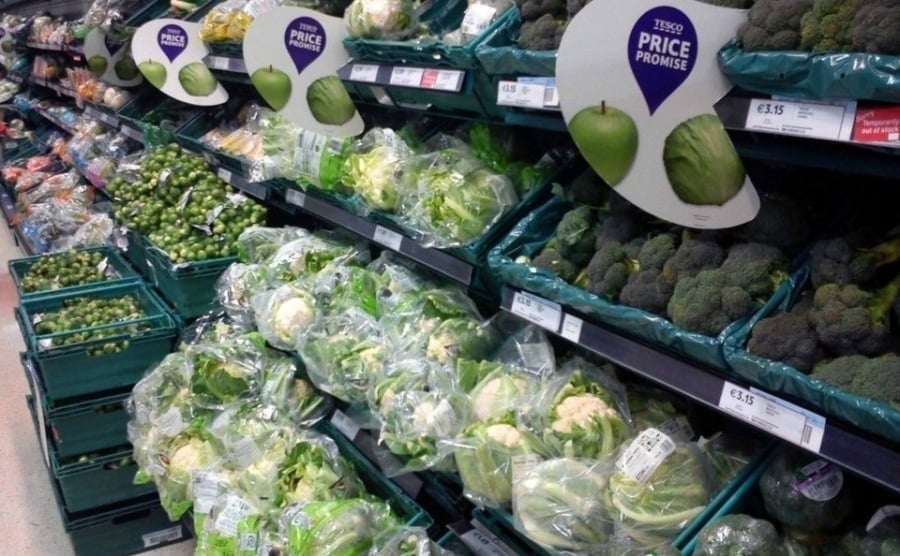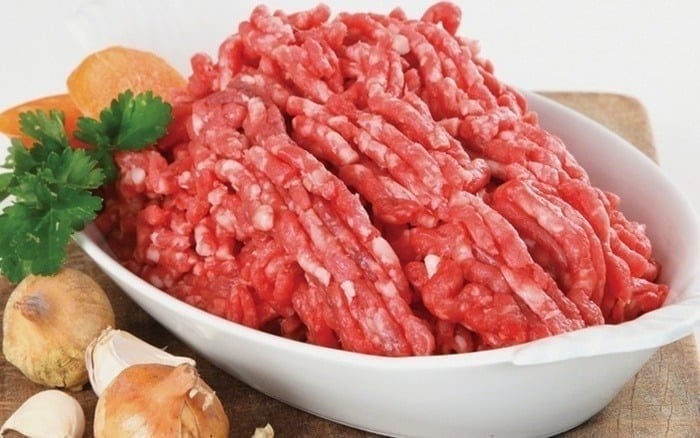Supermarkets often lure consumers with their enticing discounts, giving them a sense of getting a “bargain.” However, not all discounted items are worth the savings. Sometimes, attractive promotions can be a ploy to offload inferior quality, near-expired, or less-than-fresh produce.
It’s essential to remain vigilant and not let emotions cloud your judgment to avoid spending money on subpar products.
Pre-cut Fruits: Convenience with a Side of Risk
Pre-cut fruit trays, neatly wrapped and attractively displayed, are a convenient option for busy individuals. They offer a sense of cleanliness and appeal, especially during hot summer days. However, what many don’t realize is that these fruits might be prepared from damaged or almost-spoiled produce. Employees may remove the damaged parts and only display the seemingly fresh portions, but the taste is often compromised, and there are potential health risks if proper storage practices are not followed.

Discounted Milk: Tempting but Not Always a Good Deal
Promotions like “buy one, get one free” or significant discounts on milk can excite consumers. However, be cautious as these offers often involve milk nearing its expiration date, requiring quick consumption. While it’s fine to take advantage of the deal if you can use the milk promptly, buying in bulk just for the discount might lead to waste or, worse, health issues if consumed past the expiration date.
Off-Season Produce: Expensive and Unreliable Quality
Fruits and vegetables out of season tend to be significantly more expensive and less fresh than their in-season counterparts. They may have been stored for extended periods or imported from distant locations, resulting in reduced nutritional value and natural flavor.
Instead of indulging in off-season produce, it’s wiser to opt for in-season options, which are more affordable, fresher, and healthier for your family.
Frozen Seafood on Sale: Beware of Reduced Freshness and Quality
Supermarkets often discount frozen seafood to clear out old inventory. While the price may be tempting, if the product has been stored for too long, the meat may lose its firmness, resulting in a bland taste and reduced nutritional value.
To ensure quality, carefully check the expiration date, packaging, and temperature of the product. Stay vigilant to avoid buying seafood that has “discounted” freshness.
Ground Meat: Convenient but Requires Caution
Ground meat is a convenient option for busy homemakers, saving them time on food preparation. However, the significant drawback is the lack of control over the source and quality of the meat. You don’t know what type of meat is being ground, its freshness, or if it includes excessive fat or leftover scraps from the previous day.
Some supermarkets may use meat that is no longer fresh enough to sell as whole cuts and instead grind it and sell it quickly. To ensure safety, opt for reputable brands, carefully check the packaging and production date, and consider choosing ground meat prepared fresh at the counter.

Bottled Sauces: Convenient but Check the Ingredients
Bottled sauces like meat marinades, salad dressings, and sweet and sour sauces provide convenience in the kitchen. However, their appealing flavors often come at the cost of a long list of preservatives, colorings, and flavor enhancers—ingredients that may negatively impact your health over time.
A healthier alternative is to make your sauces at home using fresh ingredients. Simple sauces can be easily prepared from ingredients like lemon, garlic, olive oil, honey, vinegar, and pepper, ensuring both delicious taste and nutritional value.
Traditional Markets: A Budget-Friendly, Fresher Alternative
Compared to supermarkets, traditional markets often offer cheaper and fresher produce, especially if you shop early in the morning when the new stock arrives. Additionally, the produce comes directly from local farmers, reducing the number of intermediaries and ensuring a more natural flavor and higher nutritional value.
If you have the time, consider supporting local agriculture by shopping at traditional markets and enjoying the benefits of fresher, more affordable produce.
































